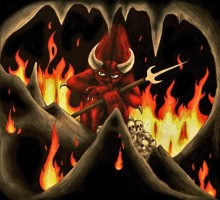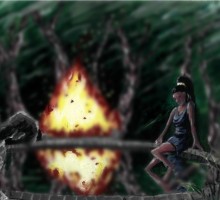Like many others, visit this site I suspect, what is ed I have had many stops and starts in the development of my writing career. Writing is an intimidating, difficult, and soul-searing thing (but misery loves company, so please, join me!). 🙂 I remember in my first couple of decades, acquiring a couple of writing books, reading them, and ambitiously writing my first novel (sci-fi, if I remember, although I don’t remember a lot about it, and all copies are lost). In any event, it was callously rejected, although thinking back, I may have gotten a personally written note on one of the rejections. For those in the trenches, you know that’s a good thing, to be treasured. But oh well, instead, I was crushed, demoralized, and went another decade before I wrote again.
But this blog post is not about my first manuscript, whatever degree of quality it may or may not have been, or even the process of submitting it, which has evolved a lot since then (hello email). Rather, I want to talk about those first writing books I bought, and an incident that happened a few years later, which stuck with me.
In my late twenties, I lived in an apartment, with a couple of other guys in my masters program (not an MFA) and with limited living space, so I decided to clear out of some of my many books (long before e-readers became popular). So I took two boxes of books to a local second-hand book store, to see if I could earn a few pennies, and feel like I wasn’t tossing something valuable into the garbage.
The store was cramped, musty, and had several crooked towers of books behind the narrow counter. The goateed guy behind the cash took my boxes and said he’d pick out which books they were interested in buying, and for what price. While he did that, I browsed.
When he was done, the counterman called me over and offered me money for roughly a third of the books. He had a question for me too, though. Pulling my two writing manuals out of the stack, he looked at me curiously. “Did they work? Did you publish anything?”
Taken aback, I shook my head. After I mumbled I wasn’t writing much anymore, he nodded knowingly. “I’m not surprised. These sell well, but they don’t do any good.”
Even at the time, I balked at agreeing to that statement, although I didn’t invite an argument by saying anything. I’d only given him only two of the three books I owned on writing. The third one (Writing to Sell, written by Scott Meredith, who agented some of the science fiction Greats in the mid 1900’s), I still thought worth keeping. I still harbored dreams of success, even if many of the counterman’s customers had given up (or maybe just he had?).
In any event, I’ve thought back to his comment frequently over the years, whenever I delve back into my writing craft books, and I think that he drew the wrong conclusion from his observations, as factual as they may have been. So a few years later, I’m going to make a few points that I think are worth considering:
A – Good writing books are like diamonds in a coal bin, rare and surrounded by worthless imitations (and, possibly stretching the anecdote too far, not always easy for someone in the dark to tell apart).
Lots of people have published How-To Writing books. Arguably too many people. The publishing industry may be its own worst enemy here. They will publish any book that makes a profit, but the proliferation of bad, or even mediocre, writing books hurts the quality of their fiction product by making it hard for emerging writers to learn their craft. (PS, I recognize the irony of making that statement, as a yet-unpublished author posting writing tips. Sometimes I make myself laugh).
I was originally planning to say that the best defense is to look at books written by people with evidenced mastery of craft, but I changed my mind, even though I think that these people are worth listening too. The problem is that that test fails for some very legitimate books, at least in my mind. For example, Syd Field, the author of Screenplay: The Foundations of Screenwriting, was, as far as I’m aware, at best a midlist screenwriter himself, but he was red hot as a big picture plot thinker and story doctor. He worked in that capacity for Disney for years–and you can’t argue with the success of the Lion King! So I would adjust my advice to say instead that accomplished writer books OR referrals are probably the best screening tool for quality writing advice. As my skills have improved, I’ve found that I like many of the same books that my favorite writer/ bloggers do.
B- Writing is a leveled craft.
Writing has levels of technical difficulty, just like any other study or sport. Stephen King described this as having different tools in the tool box, for different levels of difficulty. I might use another example: my toddler is learning ice skating right now, and one of the first things that they teach young skaters is to stand up straight with their arms out at their sides, so that they can have the pride and achievement of standing unaided on the ice, and help their balance if things start to go wrong (along with a massive sticker-laden Darth Vader helmet for when the child inevitably pitches over).
I don’t know about you, but I don’t see too many NHL players skating around with their arms stretched out like a bird.
My personal experience is that I pick up different things from the same writing book at different times. Even though I might have thought I understood what the author meant the first time, the comment often gains more relevance and resonance as I ‘level up’ in my writing. For example, conflict is a concept hammered home from Day 1 in almost every writing book, but there is a difference in having a murderer invade your home as a premise (story conflict on a very broad level) and having conflict in quiet conversational scenes, with no enemies in sight (usually spiced up through tension created by conflicting goals). The more subtle tension is more difficult and arguably more important to maintain.
C- It takes a long time to master a conscious knowledge of the craft.
I actually believe in the talent of overnight successes. I think Stephanie Meyer (as I understand it, Twilight was her first manuscript, although feel to correct me if I’m wrong) is incredibly talented and a strong writer, for tension, character, and plot twists. There are other first books (as in the writer’s first completed manuscript) that I love. But some of those writers (and in this case, I’m not talking about Ms. Meyer) don’t maintain the same high level of quality.
I believe that some people are instinctually good writers (a strong storytelling ability combined with lots of reading to give an instinctive feel for how stories should go) but, I suspect that not having the same conscious mastery of the craft (ie. relying on instincts instead of analysis) makes it harder to maintain a high and consistent level of quality, simply because there is less understanding of how that high quality product is achieved. It is the same reason why good natural batters can still benefit from a batting coach in the major leagues–even if that coach never achieved the summits of success that their pupils did. Natural talent and good coaching are more powerful together, than either alone.
In summary, a somewhat involved post triggered by a fairly simple comment, but one I think is useful to consider for beginning writers. In my belief, just because one writing book doesn’t make you a published author, doesn’t mean that you shouldn’t buy the next one. I think you should. Just try to buy ones that actually help, and aren’t just another piece of dusty coal in the bin.
As an aside, that trip to the bookstore was memorable for another reason. I parked on the busy street outside the store while ducking in, thinking I’d only be there for a minute or two. In other words, I didn’t feed the meter.
The goateed counterman gave me twenty dollars for my books.
The parking ticket was fifty.

